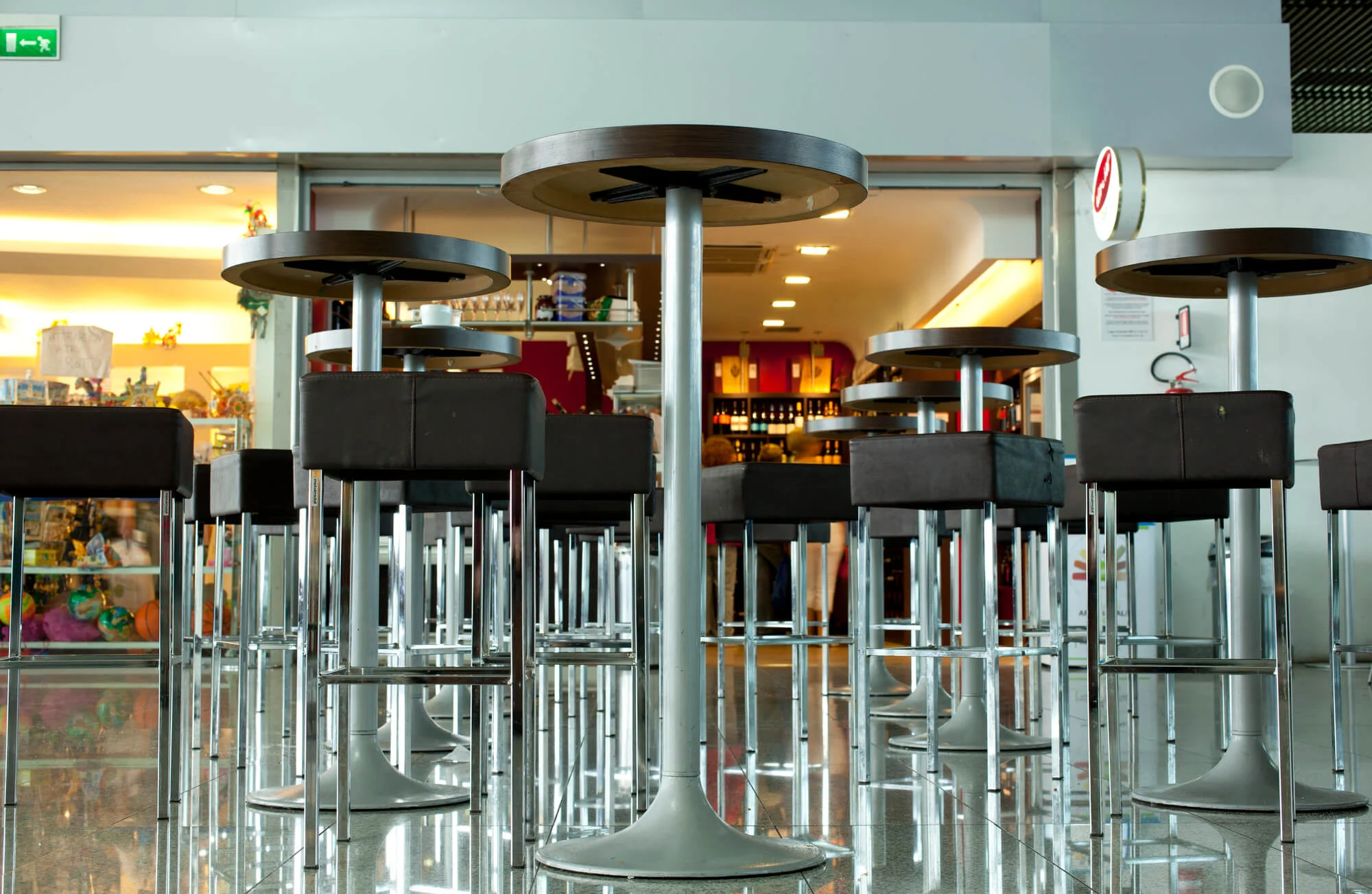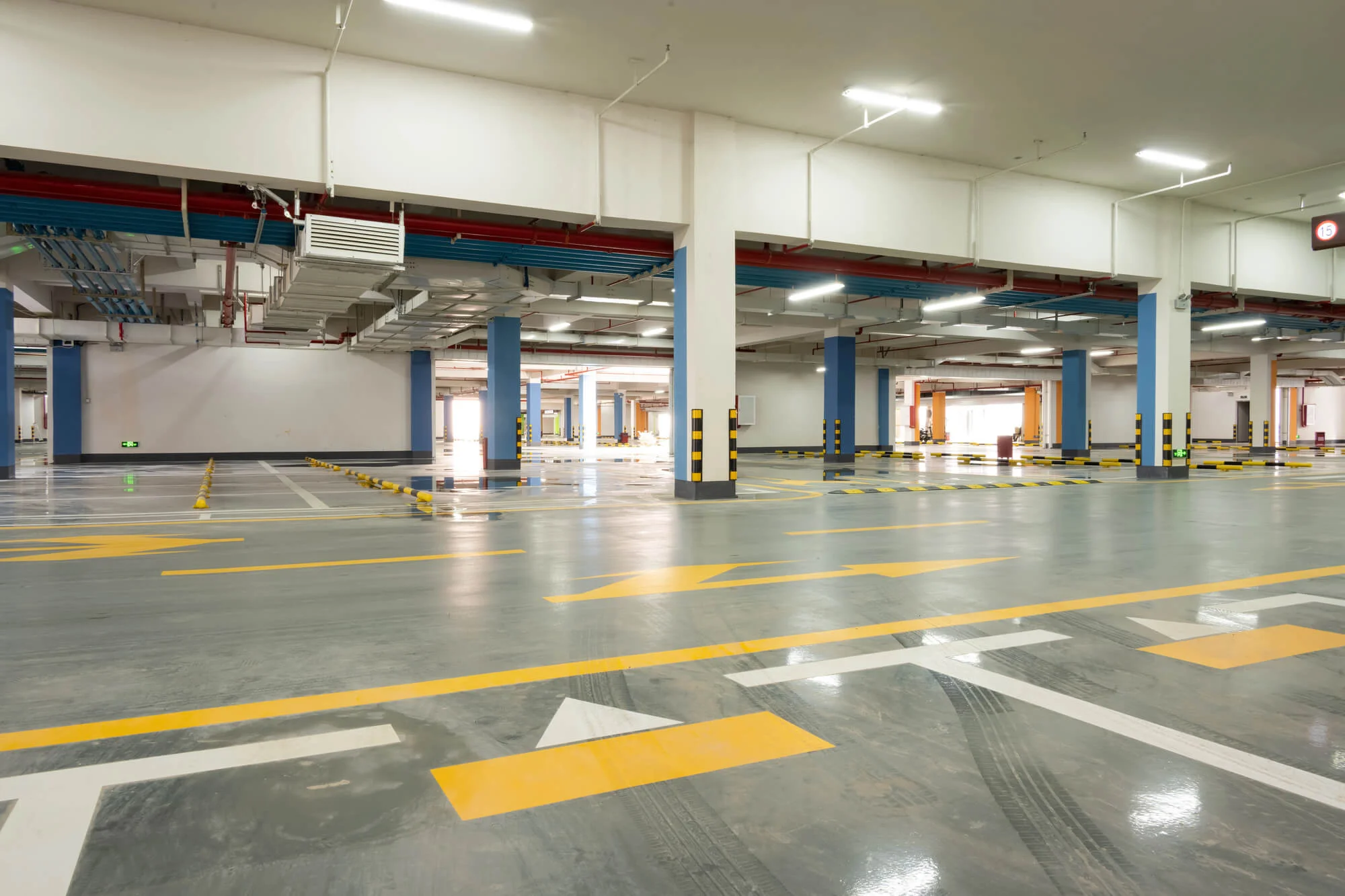Are Epoxy Floors a Smart Investment for High-Traffic Commercial Spaces?
post
Are Epoxy Floors a Smart Investment for High-Traffic Commercial Spaces?

Business owners know that floors take a beating. From constant foot traffic to heavy equipment, commercial spaces demand flooring that lasts. Traditional options like tile, carpet, or bare concrete may look fine at first, but often require frequent repairs and replacements.
That’s why more companies are choosing epoxy flooring in Jupiter. It combines unmatched durability with easy maintenance, giving businesses long-term value and a polished, professional look.

The Benefits of Epoxy for Busy Commercial Spaces
Epoxy flooring isn’t just strong—it’s designed to handle the daily wear and tear of demanding environments. Retail shops, restaurants, and warehouses all benefit from its unique combination of performance and style.
1. Durability That Handles Constant Foot Traffic
Retail shops and restaurants in Jupiter see hundreds, sometimes thousands, of people walking across their floors every week. Tile grout wears down quickly, wood scratches from carts and chairs, and laminate buckles under moisture. Once these issues appear, repairs become costly and disruptive.
Epoxy floors form a seamless, rock-hard coating that resists scratches, dents, and chips. A boutique doesn’t have to stress about high heels or shopping carts leaving marks, and restaurants won’t see gouges from chair legs or stains from spilled wine.
This level of toughness keeps floors looking newer for longer, which is especially important when customer impressions are tied to how clean and well-kept a space feels.
2. Easy to Clean and Maintain
Commercial cleaning staff often have long checklists, so flooring that’s easy to care for is a real asset. Epoxy has a non-porous surface, meaning liquids don’t seep in, and dirt has fewer places to hide.
Restaurants benefit most—grease, sauces, and drinks can be wiped up before they leave a trace. Even in busy kitchens, epoxy floors resist food stains that would ruin tile or concrete. Retailers can sweep up tracked-in dust and mop without worrying about discoloration. Warehouses appreciate how epoxy shrugs off tire marks and oil drips, cutting down on the need for deep scrubbing.
Because epoxy requires less intensive cleaning, businesses save money on supplies, labor, and downtime. That’s a bottom-line advantage many managers don’t realize until after the upgrade.
3. Safety Features for Staff and Customers
Slips and falls are a leading cause of workplace injuries, and in commercial spaces, they also lead to liability issues. Bare concrete becomes slick when wet, and tile often gets dangerously slippery with spills.
Epoxy floors can be finished with textured additives that increase traction. In a restaurant, that means fewer accidents in busy kitchens where liquids and oils are common. In retail, a safer footing for shoppers reduces the chance of costly claims.
Warehouses benefit as well—forklift operators and staff moving heavy loads can trust the surface under their feet. By investing in slip-resistant epoxy, businesses protect both people and profits.
4. Chemical and Stain Resistance
Many commercial environments regularly deal with substances that ruin traditional flooring. Cleaning chemicals, solvents, oils, and even dyes can soak into porous materials, leaving permanent stains or damage.
Epoxy floors are engineered to resist these issues. They create a sealed barrier that keeps chemicals on the surface until they’re cleaned away. Restaurants benefit from this because common cleaners and degreasers won’t break down the floor.
Salons or shops that work with dyes don’t have to worry about blotches ruining the look of their space. Warehouses that handle oils or industrial chemicals can operate with confidence, knowing spills won’t destroy the surface.
This resilience makes epoxy especially practical for businesses that can’t afford downtime for major floor repairs.
5. Supports Heavy Loads and Equipment
Retail spaces deal with carts, display racks, and deliveries. Warehouses handle forklifts, pallets, and heavy equipment daily. Not all flooring is built to withstand that level of stress. Under weight, tile cracks, untreated concrete chips, and wood dents.
Epoxy strengthens the concrete base it’s applied to, creating a surface that evenly distributes weight and resists damage from rolling or stationary loads. In warehouses, forklifts can operate without leaving tire ruts or weakening the surface. In large retail stores, shelves and displays stay stable without digging into the floor. Restaurants that move equipment like refrigerators or ovens during deep cleans won’t leave gouges behind.
By preventing costly floor damage, epoxy becomes more than an upgrade—it’s a way to protect overall operations.
6. A Professional, Polished Look
In business, appearances matter. Customers and clients often make judgments within seconds, and flooring plays a bigger role than many realize. A stained, cracked floor sends the wrong message, while a glossy, seamless surface communicates professionalism and care.
Epoxy flooring comes in a variety of finishes, from sleek gloss to satin or matte. Retail shops benefit from reflective finishes that highlight merchandise. Restaurants gain a modern, upscale look that complements décor and creates a welcoming atmosphere. Even warehouses and auto dealerships use epoxy because it projects a clean, organized, and professional image.
This versatility means epoxy isn’t just practical—it’s part of your brand presentation.
7. Long-Term Savings and ROI
Some business owners hesitate to install epoxy flooring, assuming the upfront investment will be high. However, compared to the life cycle of other floors, epoxy often proves far more cost-effective.
Tile requires re-grouting and replacement of cracked sections. Wood demands sanding, sealing, and refinishing. Bare concrete chips and stains, often needing patchwork. Over ten years, these costs add up significantly.
Epoxy, on the other hand, lasts for decades with minimal upkeep. The low maintenance and reduced repair needs translate into lower total costs. For busy restaurants and retail shops, avoiding even a few days of downtime for floor repairs saves thousands. In warehouses, durability prevents disruptions to operations. The return on investment is clear: epoxy pays for itself while keeping your business running smoothly.
8. Customization for Branding
Floors don’t have to be boring. Epoxy allows businesses to customize their surfaces in ways traditional flooring can’t match. Options include bold colors, quartz blends, metallic finishes, or even embedding a company logo right into the floor.
Retailers can create an atmosphere that reflects their brand’s identity, from chic and modern to warm and inviting. Restaurants can choose finishes that align with their dining experience, whether casual and fun or sleek and upscale. Warehouses can use color-coded zones to increase efficiency while keeping the space attractive.
This level of customization ensures that the floor isn’t just functional but also part of the business’s overall design strategy.

The Value of Epoxy Flooring in Jupiter
When it comes to high-traffic commercial spaces, no other flooring option balances durability, safety, and style like epoxy. Retail shops, restaurants, and warehouses all benefit from its ability to resist damage, handle heavy loads, and maintain a polished look with minimal effort. Over time, the cost savings and professional appearance make epoxy a smart investment that supports both daily operations and long-term growth.
Interested in epoxy flooring in Jupiter? Contact Florida Elite Epoxy today. Our team specializes in durable, stylish coatings tailored to the unique needs of commercial spaces. Schedule a consultation now and discover how epoxy can protect and enhance your business floors.




